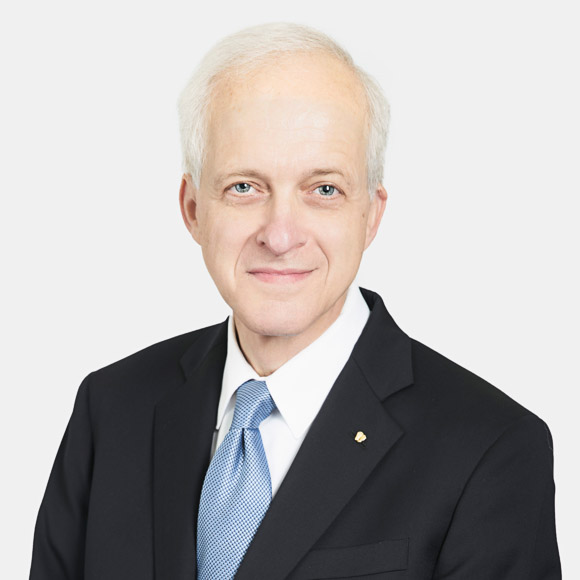Esposito Writes on Special Relationships in Tort
Schools’ Duty to Prevent Suicides: A New Special Relationship
It was a classic movie scene. Karl Malden, playing a fire-and-brimstone preacher in Disney’s Pollyanna, has his flock squirming as his builds to his climatic line: “Death comes unexpectedly!” It was great stuff, humorous for how Malden played the congregation. But of course, we know it’s true. And when death does come, it can be so very tragic.
On college campuses, suicide is the second leading cause of death. The reasons can be many, sometimes never to be known. What’s known is that for some students, the will to live even for another moment deserts them. For those left behind, the loss of life, the shock and pain, are always difficult to bear.
Generally, there is no legal duty to prevent suicide. The law does not impose a duty to rescue another from harm that a would-be rescuer did not create. But an affirmative duty of care may arise when a “special relationship” exists between a potential rescuer and a person at risk of harm. Typically, there are only a few special relationships: innkeeper-guest, carrier-passenger, master-servant, custodian-ward, and possessor of land-invitee. The Massachusetts Supreme Judicial Court has recently added another: university-student. Nguyen v. Mass. Inst. of Tech., 2018 Mass. LEXIS 249.
Facts
Han Nguyen, a 25-year old grad student living off campus, enrolled in a marketing doctoral program. His wanted to be a professor. He sought the school’s help with test-taking problems. Referred by student disability services to MIT’s mental health service, Nguyen at first denied suicidal ideation. Later, he admitted to a long history of severe depression and two suicide attempts while an undergrad. But he did not identify a plan to commit suicide, nor did he appear imminently suicidal to school personnel or to an off-campus psychiatrist he was seeing.
While in the program, Nguyen received academic help from two professors, neither of whom were aware of his history of depression and suicide attempts. They heard he was having problems with sleep deprivation. They relaxed his exam schedule. Ultimately Nguyen passed his course work, but his work was not good. Given a teaching assistant role, he did not respond appropriately in emails to his supervisor. After a professor “read him the riot act” for an inappropriate email, Nguyen went to the roof of a school building and jumped to his death.
Nguyen’s father brought a wrongful death action against MIT and three academics. The trial court ruled that none owed Nguyen a duty of care. The Supreme Court agreed, but not before explaining when an institution of higher learning owes an affirmative duty to prevent suicide.
Analysis
Special relationships in law are grounded in the concept of control. In a relationship like carrier-passenger or innkeeper-guest, the former exerts a measure of control that restricts the latter’s opportunities to protect him or herself. In a relationship like master-servant, a master can control a servant’s activities so to protect others from harm. So the law imposes an affirmative duty to protect and rescue from harm.
In a university-student relationship, schools have multi-faceted roles in their students’ lives, from educator to advisor to coach to landlord to social director. At the same time, they do not monitor every aspect of students’ lives and must remain respectful of their autonomy and privacy.
Given the relationship, the primary factor in determining the extent of a duty to protect and rescue is foreseeability. Can a school reasonably foresee that it would be expected to take protective action, and can it anticipate harm if it fails to do so? Another factor is whether a student would reasonably rely on a school’s help and so not seek help from others. Other factors include the certainty of harm, the burdens on a school, the mutual dependence of school and student, financial benefits to a school, the moral blame for inaction, and social policy considerations of holding a school liable.
Based on these factors, the Nguyen Court found a special relationship, with a resulting duty to take reasonable measures to prevent student suicide. But it limited the circumstances. A school must have actual knowledge of a student’s suicide attempt either while enrolled or recently before enrollment. Alternatively, it must have learned of a student’s stated plans or intentions to commit suicide. Non-clinicians are not expected to know suicidal tendencies. A student’s general statements or ideations about suicide are also not enough to trigger a duty.
What constitutes reasonable care includes creating a suicide prevention protocol within the institution to timely alert persons trained to help. In emergencies, it includes contacting police, fire, or medical personnel. Though the duty of non-clinicians is limited, trained professionals must met the standards of their professions.
Learning Point
The law tends to catch up to the needs of society, and this is an area where that it happening. Expect other states to follow suit. Unfortunately, the epidemic of student suicide is not going away anytime soon.
 Paul V. Esposito
Paul V. Esposito